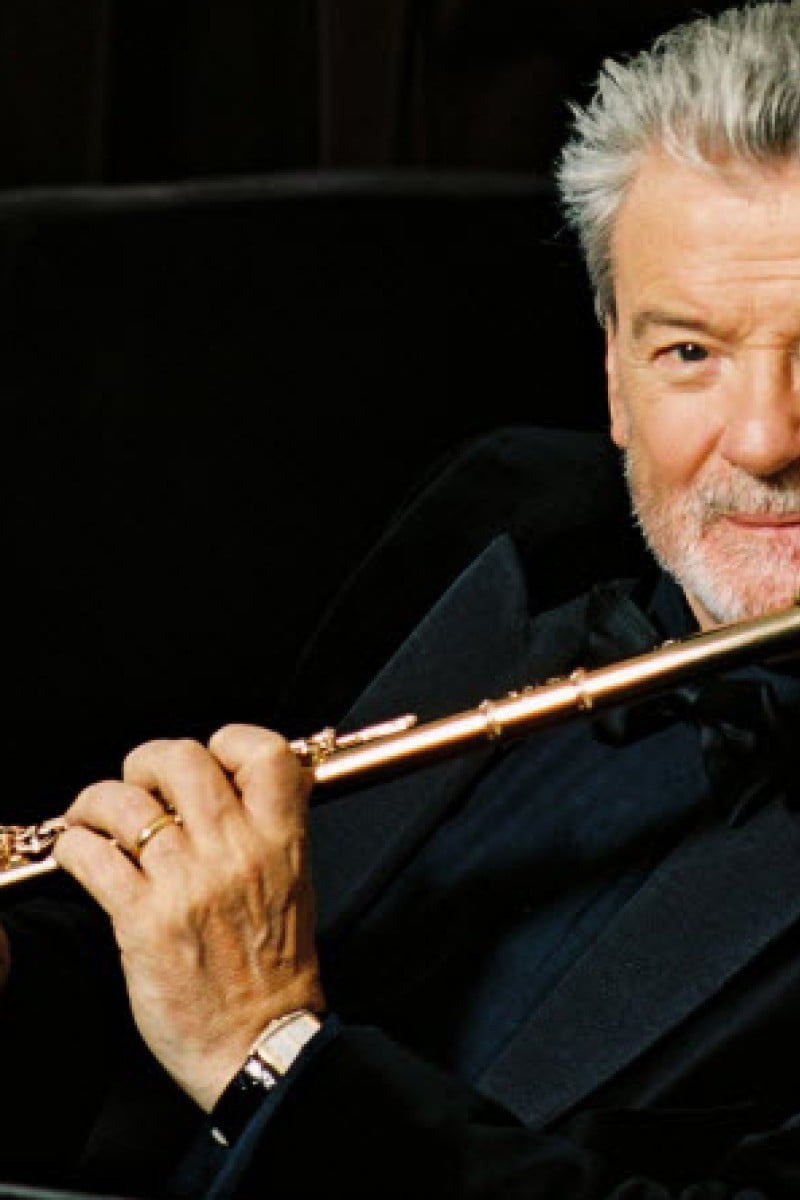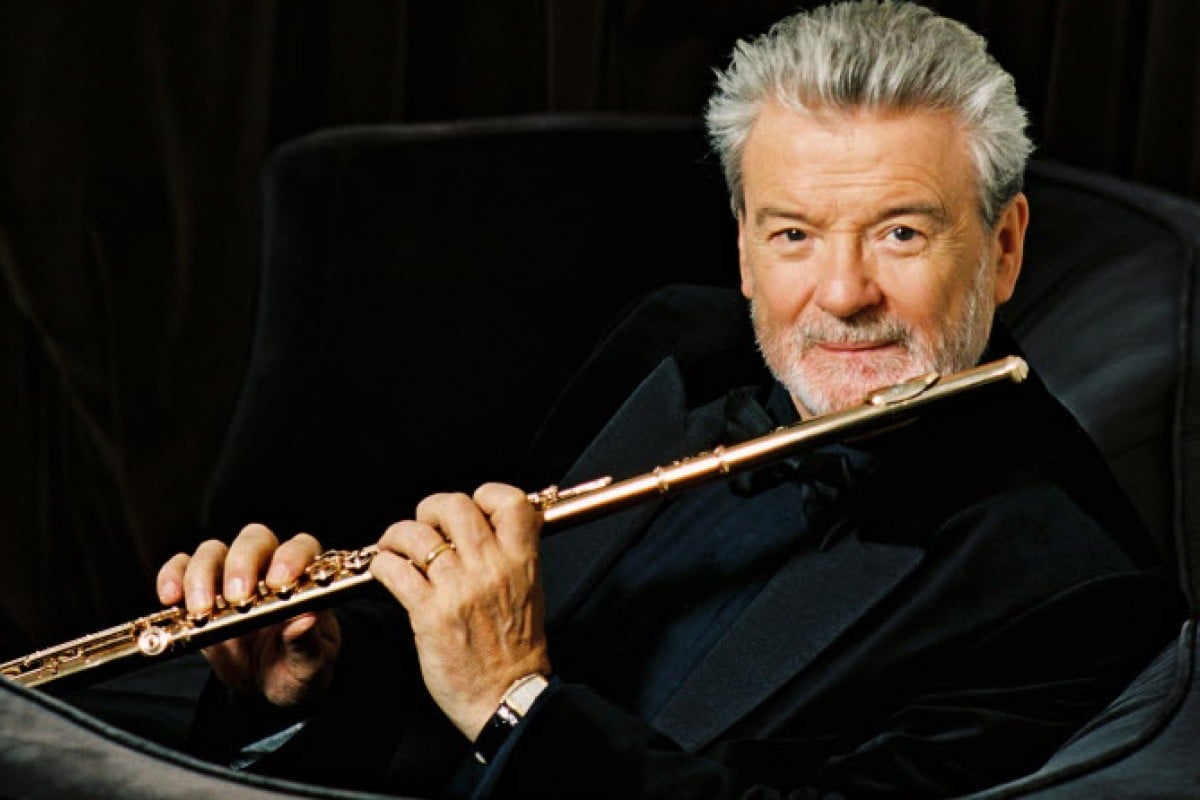
Renowned flute player Sir James Galway talks about hard work and how playing an instrument can help with your academics
 To Sir James Galway, success comes down to hard work.
To Sir James Galway, success comes down to hard work.He's the man behind The Lord of the Rings soundtrack, has played alongside Elton John and Stevie Wonder, been knighted by Britain's Queen Elizabeth II for his services to music, and sold more than 30 million albums. Nope, it's not Justin Bieber we're talking about; it's Sir James Galway, one of the world's best flute players.
Also known as "The Man with the Golden Flute", the Irish legend is in Hong Kong and will be performing at City Hall's Concert Hall on Sunday.
Galway, 76, began his career as a soloist in 1975, so he knows the music industry better than most. But what advice does the world's most famous flute player have for Young Post readers?
His biggest tip isn't much of a secret at all: success comes down to hard work, and a lot of hours spent practising. Ten thousand hours, to be specific.
To explain, Galway refers to the theory that you need 10,000 hours of practice to master anything, and he says that the younger you start, the better.
"If you only start practising as a teenager, then you miss the 10,000 hours by the time you're 20. And practice is what you need to really succeed at anything," says Galway.
But Galway adds that musical education isn't just for aspiring musicians, noting that it has been proven that students who play instruments perform better academically.
When it comes to his own preparation, Galway has a different approach for every tour. "I practise a lot every day. Nowadays students learn techniques by studying a piece, and playing it over and over again. I learned by studying tone production, scales and breathing techniques. Once I learned all these things, I could play all of the pieces a bit better."
Galway emphasises there is no shortcut to anything. "You may think this little tip - a shortcut - will help you, but in the end, it hasn't helped you," he says.
"Supposing I was a weightlifter, what tip would you give me? There's no tip, you just have to do the press-ups every day. And if you do more than the other guys, you're going to succeed, like [Arnold] Schwarzenegger. He practises and practises until he's clearly better than the other people; not just a little bit better, but a whole lot better."
Galway names some big bands, like U2, Pink Floyd and the Beatles, and highlights their commitment to hard work and practice.
"Look at the Beatles, they played hundreds and hundreds of concerts before they made their first record. When they made that first record, they walked in with a list of things and said, this is what we do best, record it. The result was what we heard, and it was really great," he says. "It was because they had already practised for hours and in front of an audience for years."
But Galway makes it clear that you don't need to become a famous musician to reap the benefits of learning an instrument. He says that simply studying music helps people to see the world differently. "Music is a different thing; a different language. You don't need to become a professional to understand what's involved in playing a musical instrument," he says.
"When you see a full score of a symphony, you see all these dots and dashes and stuff. When that is translated by the orchestra, you hear beautiful music, and musicians have to understand how that all works.
"It teaches them that there is a different way of looking at things. This helps them understand that when they do mathematics, there is a different way to look at that, too, and the same with history and physics. Music helps people find a new way of associating and understanding."
Watch Galway, along with his fellow flute-playing wife Lady Jeanne Galway, violinist Amelia Chan, harpsichord player Shane Levesque and the City Chamber Orchestra of Hong Kong, perform two of Bach's Brandenburg Concertos (Nos 4 and 5) plus the composer's Orchestral Suite No 2 on Sunday.